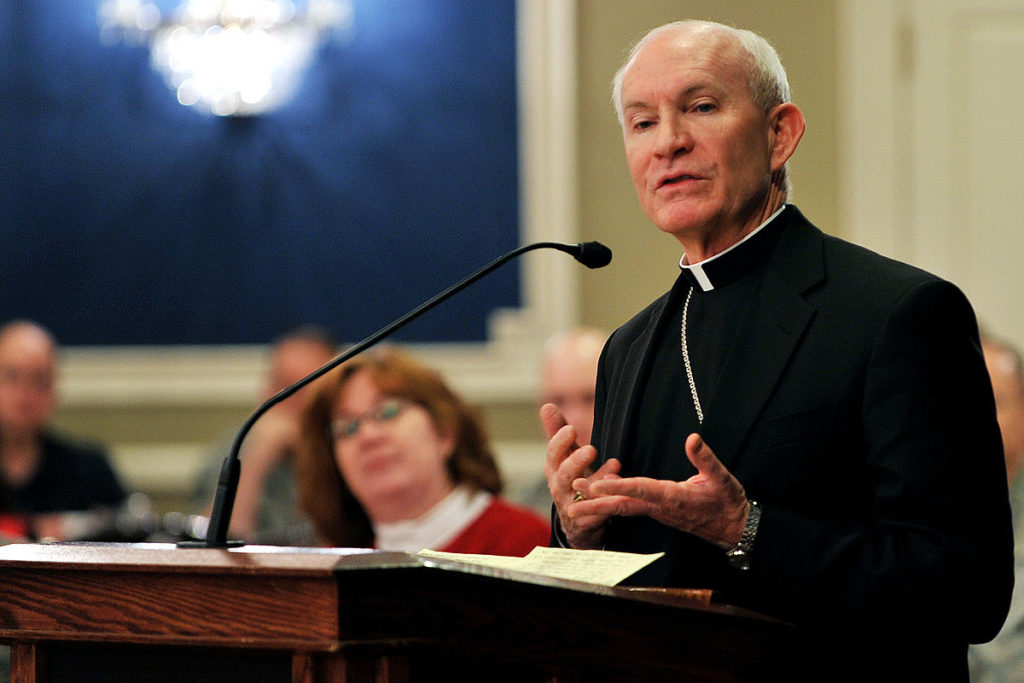Here’s what the much-awaited Archdiocese of Omaha school gender policy for 2023-24 says
The Archdiocese of Omaha has released its revised gender policy for Catholic schools, set to be implemented for the 2023-24 school year.
As promised when the initial policy was postponed, the…

The Archdiocese of Omaha has released its revised gender policy for Catholic schools, set to be implemented for the 2023-24 school year.
As promised when the initial policy was postponed, the revision remains “rooted in the Catholic understanding of gender.” However, some repercussions for violating the policy are no longer part of the latest document.
The new version stops short of expelling students for requesting the school respect their preferred gender identity. Such students may remain if they adhere to gender norms appropriate to their “God-given biological sex.”
In addition, the policy no longer applies to teachers and other school staff, as they sign contracts and are employed under rules and guidelines “that require employees’ commitment to follow the teachings of the Church.”
The use of gender neutral, or gender incongruous pronouns remains impermissible, as does wearing clothing inconsistent with a student’s biological gender. The same goes for the use of bathrooms, locker rooms and school activities.
Rather than denying a student admission or retention over gender dysphoria, the new policy seeks to assist the student by engaging parents, pastors and school leaders in a process known as an “accompaniment plan.”
The plan is individualized and geared toward bringing the child back to a comfortable relationship with their true gender identity consistent with Catholic teaching.
If either the student, or their parents or guardians, want accommodations inconsistent with church teaching, the policy offers to facilitate the transfer of the student to a school more suited to their interests, although that process is not immediately triggered as it was in the earlier draft.
“The policy expresses our continuing determination for our schools to partner with the parents whose children face special challenges, to the extent that we are able to do so,” Archbishop George Lucas said in a letter released with the updated policy.
The archdiocese included a FAQ document for further clarification of the revised policy. In the FAQ, the archdiocese admitted the original guidance was “too broad,” and “reached into areas that were outside the scope of gender identity.”
The original policy asked too much of school administrators, requiring them to “monitor areas of concern outside their responsibilities.”
The first-draft policy sought to address behavior outside of school hours and locations on an equal basis with in-school behavior. School personnel were expected to document violations outside of their direct control. That approach has been abandoned in the revised policy.
Catholic Families for Love (CFL), a group that formed in response to the original policy released in August, is still dissatisfied with the revision, which it says lacks input from its members.
The group describes itself as made up of “engaged parents and parishioners — numbering over 400 families in the Omaha metro — who love and support our schools.” CFL repeatedly requested a joint “synodal” meeting to assist in the crafting of the revised policy. But while declaring itself to be a Catholic group, CFL admits its membership is not limited to Catholics.
“Synodal” has a specific meaning in Catholicism, lending an official church imprimatur to the discussion. Formally involving non-Catholics in the drafting of a policy rooted in Catholic doctrine would be inconsistent with Canon law, placing CFL’s request outside the bounds of synodal discourse.
The archdiocese consulted numerous sources in the process of redrafting the document, including secular experts and other archdioceses, before finalizing the policy. The archdiocese considers the matter concluded.



